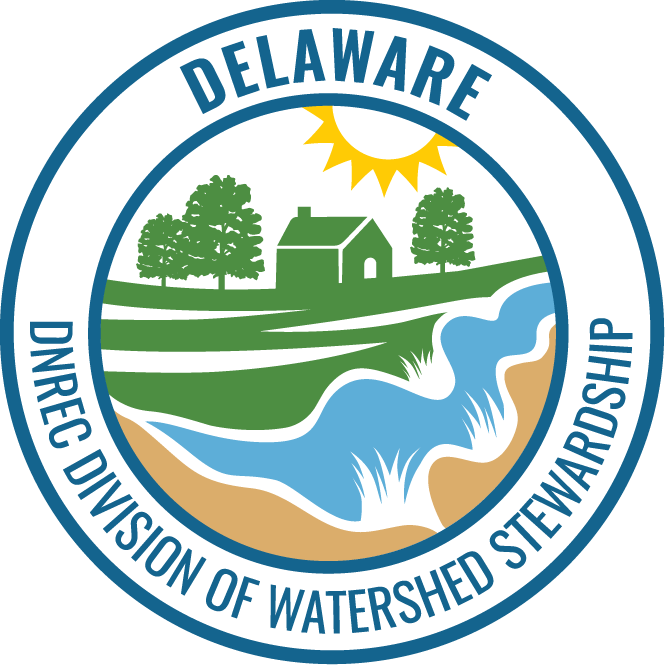
Facebook Twitter Instagram YouTube RSS Feed
Written on: May 17th, 2024 in Outreach, Wetland Research
By Olivia Allread, DNREC’s Wetland Monitoring and Assessment Program
Behind every grant package and backpack full of gear stands a key agent of the natural resource world: a woman. We have long known that women play a crucial role in the management, provision, and safeguarding of natural resources across our globe. In recent decades, even more recognition has been given to that vital role, as well as the disproportionate barriers that they (we) encounter. Our wetland and water resources are some of the most precious ecosystems on earth, so why not celebrate the women working behind the scenes and making remarkable contributions to these habitats.
Megan Lang – Chief Scientist, U.S. Fish and Wildlife Service National Wetlands Inventory Program
A mapping wiz. Lang works for a program within the U.S. Fish and Wildlife Service that is a leader in the understanding of wetlands. Through the monitoring and mapping of U.S. wetland and deepwater habitats, the program provides two heavy hitters to the public: the National Wetlands Inventory Geospatial Dataset and the Wetlands Status and Trends Reports to Congress. The Wetlands Mapper, as it’s better known, is the public interface to the wetlands geospatial dataset and delivers easy-to-use map views of America’s wetland resources. The Status and Trends report provides estimates of U.S. wetland type, extent, and change over time. In fact, the newest report was just released! Besides wearing this hat, Megan wears many others including an adjunct professor at the University of Maryland and has over 100 publications.
Lili SUN – Founder and Deputy Board Director, Shenzhen Mangrove Wetlands Conservation Foundation
As discussed on this blog before, mangroves are meaningful coastal wetlands. SUN represents those ecosystems and more as a leader in many of China’s environmental efforts. Having established the Shenzhen Mangrove Wetlands Conservation Foundation (MCF) in 2012, she led the organization to be the first environmental non-profit entrusted with managing an urban ecological park in China. Additionally, she serves as the Director of the park, combining wetland conservation with social engagement of visitors. In addition to many of her accolades and board memberships throughout the country, she is dedicated to charity, surpassing over 50 million yuan ($7 million USD) in wetland conservation efforts and mobilizing over 100,000 volunteers for wetland protection. SUN seeks to empower communities to actively participate in environmental initiatives.
Susan-Marie Stedman – Wetland Scientist and Policy Analyst, National Oceanic and Atmospheric Administration (NOAA) Fisheries Office of Habitat Conservation
With over 40 years of experience in the field, Stedman is a connoisseur of many critical habitats. She has worked on everything from the Peace Corps in Africa to the White House Wetlands Working Group, to publishing groundbreaking reports on wetlands in the coastal watersheds of the eastern U.S. Having currently been with NOAA for almost 31 years, she focuses on wetland regulations and management, status and trends, climate change adaptation, mitigation banking, and effects of development on aquatic environments. Her office within NOAA is deeply integrated in the field of STEM focusing on protecting and restoring habitats while keeping protected species and coastal resiliency at the forefront of all efforts. An example of her work is NOAA’s Mitigation Policy for Trust Resources, which Stedman helped compose – this conservation policy keeps wetlands in mind!
Sarah Fleming – Director of Conservation Programs, Ducks Unlimited Northeast
Talk about a lot of ground to cover; Fleming oversees the conservation efforts in a 12-state region for Ducks Unlimited (DU). With a vast background in waterfowl and wetland ecology, she came on board with the non-profit in 2010 to deliver projects that protect and restore critical wetland habitats, particularly in the Northeast Atlantic Flyway. Amazingly, she has done just that with over 20,000 acres of projects accounted for so far. One of Fleming’s most significant projects was the restoration of the Dury site, a 35-acre wetland habitat for migratory birds in northern New York state. Not only did she lead a fee-title acquisition from a private landowner and collaborative efforts with partners, but also transferred the Dury site to the Montezuma National Wildlife Refuge. A true success story for land protection and management of a critical wetland habitat.
Dr. Musonda Mumba – Secretary General of the Convention on Wetlands
Dr. Mumba calls Kenya her home, but this Zambia-born environmentalist has done wetland work throughout the globe for 25 years. Holding a PhD in Wetland Ecology, she started her career with the Environmental Council of Zambia, then moved onto positions with the World Wildlife Foundation in East Africa and at the headquarters in Switzerland. She spent much of her time with the United Nations (UN), both in the Environment and Development Programme’s, focusing on ecosystem restoration, wetlands, and sustainable development using nature-based solutions. Now as the Secretary General of The Convention on Wetlands, she uses her career experience to guide the treaty framework for this intergovernmental organization, as well as lead the various groups and committees within the Convention itself.
Let’s think bigger picture. Outside of the realm of wetlands and natural resources, these stories speak to the work women at large are doing across the globe, as well as gender equality. Everything from educational opportunities to decision-making, economic participation to political representation, women are striving for their voices to be heard or their efforts to be seen. One of the easiest ways to support gender equality is through recognition. Empowered women and girls contribute to the productivity and health of their families, communities, commerce, and governments. That ripple effect benefits everyone and has real impacts on generations to come. So, this one’s for the girls; the ones driving a boat through Iraq’s Mesopotamian marshes; the ladies conserving coastal prairie habitats in Texas; and for the gals getting their field boots on for the first time. Every achievement inspires us to continue supporting and celebrating women in the world of wetlands.